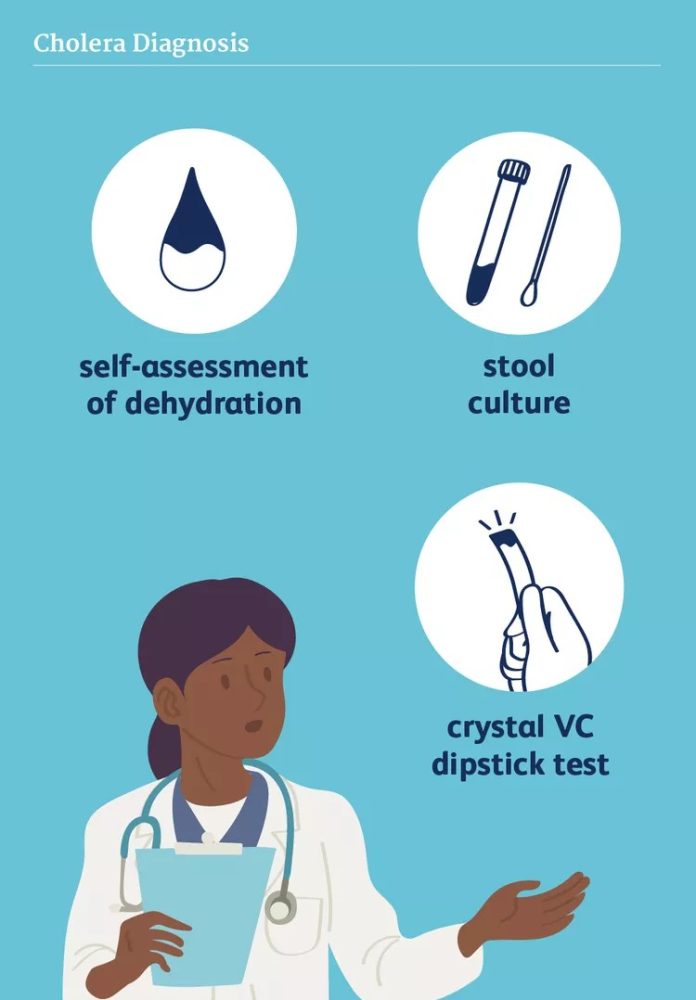The Nigeria Centre for Disease Control and Prevention says diagnostic capabilities are weak in many states.
The Director General of the NCDC, Dr. Jide Idris, said this at a Press briefing in Abuja on Monday while speaking on the cholera situation in the country.
Cholera is a food and water-borne disease caused by ingesting the bacteria Vibrio cholerae in contaminated water and food. Cholera can cause severe acute watery diarrhoea, and the severe forms of the disease can kill within hours if left untreated.
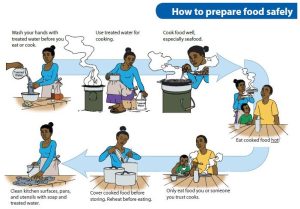
In Nigeria, cholera is an endemic and seasonal disease, occurring annually, mostly during the rainy season and more frequently in areas with poor sanitation.
He said, “What we’ve discovered is that diagnostic capabilities in many states, especially in laboratories, are very weak, and that’s why the Technical Working Group has advised that we intensify training of these staff, but these people operate in the states. And don’t forget, a lot of these cases are found in those states, they are states’ responsibilities, and our role is to support them.
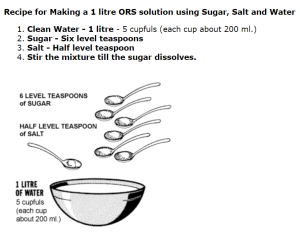
“A lot of our partners too are supporting them in training in the various states. There are many ways of diagnosing cholera. In most cases, they say you can confirm, but in our situation, if you wait to confirm, more people will die. So, there is what we call presumptive confirmation.
“If you do basic microscopy in your basic lab, you don’t even need the high-performing lab for this basic microscopy. If you are properly trained, you can detect that. Even if you look at the stool, it’s very characteristic.
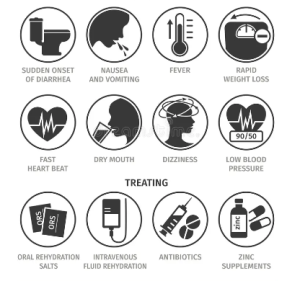
“They call it rice water stool. It’s like when you boil rice halfway through, you want to see that fluid, that’s the colour of the rice water stool. So, even if you see that, you don’t necessarily have to fault it because these people are losing fluids, they are losing electrolytes, and that’s what kills.”
Idris noted that the country has recorded 1,528 suspected cases of cholera and 53 deaths in 31 states across 107 Local Government Areas so far in 2024.
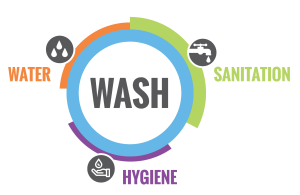 According to him, Lagos, Bayelsa, Abia, Zamfara, Bauchi, Cross River, Ebonyi, Rivers, Katsina, Delta, Imo, Nasarawa, Ondo states, and three more states constitute 90 per cent of the burden of the infection.
According to him, Lagos, Bayelsa, Abia, Zamfara, Bauchi, Cross River, Ebonyi, Rivers, Katsina, Delta, Imo, Nasarawa, Ondo states, and three more states constitute 90 per cent of the burden of the infection.
On the number of deaths recorded from states, he listed, Lagos (29), Bayelsa (2), Abia (4), Cross River (1), Rivers (8), Katsina (3), Delta (4), Nasarawa (1), and Ondo (1).
He also revealed that NCDC would engage the Nigerian Governors Forum this week on the roles the State governments are supposed to play in preventing and mitigating the effects of the disease.
According to him, the State Commissioners of Health had earlier been contacted through the Chairman of the forum when the uptick in the spread of the disease was first noticed, to prepare them for action and to alert their governments to the spread of the disease.

